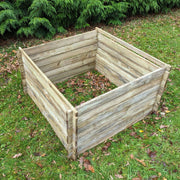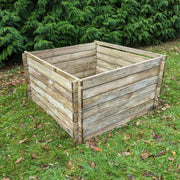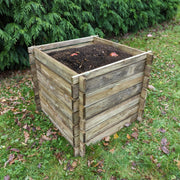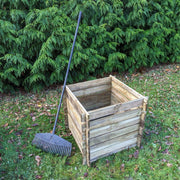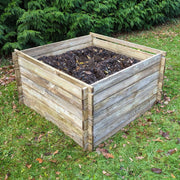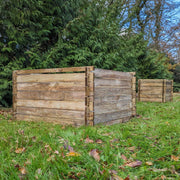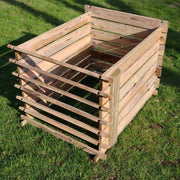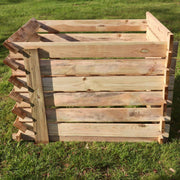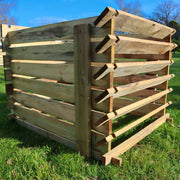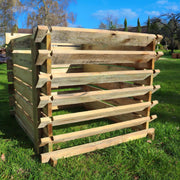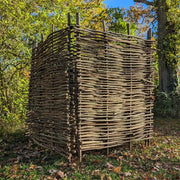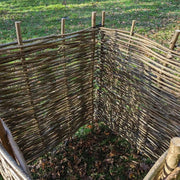A slatted wooden composter is an efficient, eco-friendly way to recycle garden and kitchen waste. Its open design allows for excellent air circulation, speeding up decomposition by feeding microbes the oxygen they need. Removable slats make it easy to load,...
A slatted wooden composter is an efficient, eco-friendly way to recycle garden and kitchen waste. Its open design allows for excellent air circulation, speeding up decomposition by feeding microbes the oxygen they need. Removable slats make it easy to load, unload, and access finished compost—no digging required.
Built to withstand the elements, these composters offer long-term durability and a steady supply of nutrient-rich compost.
Looking for a simple, effective composting solution? A slatted wooden composter is a great place to start.
